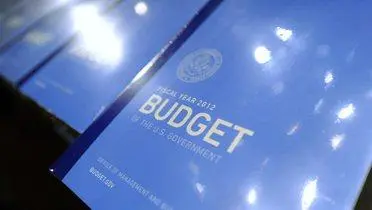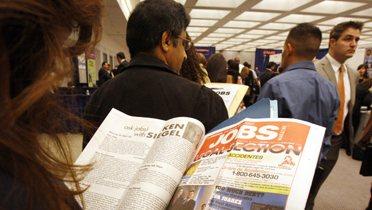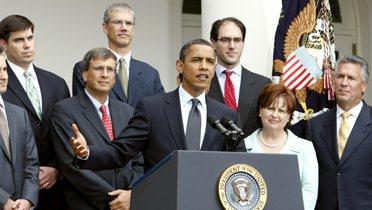President Obama delivered a forceful speech last night on job creation that offered some common ground in our too-polarized political landscape. The moment provides an opportunity for bipartisan cooperation, if our leaders can find the political will.
Among the measures Obama offered were proposals that can also be found in a plan put forward recently by the U.S. Chamber of Commerce, traditionally thought of as a Republican-leaning organization, and in proposals offered by his rivals in the presidential race. And many echoed themes that experts here at Brookings have advocated for some time.
Chief among them was Obama’s call for both significant deficit reduction and targeted economic stimulus, a combination that economists at Brookings and elsewhere agree must be the basis of true recovery from the recession.
Other areas of commonality include:
- Passage of the three pending free trade agreements with Panama, Columbia and South Korea is backed by Obama, the chamber, and GOP candidate Mitt Romney.
- Increased worker training and investment in education proposed by both Obama and Romney.
- Incentives for employers to hire new workers, and the reduction of corporate tax rates as part of overall tax reform, proposed by Obama, the chamber and Romney, albeit with very different approaches.
- Investments in transportation systems and infrastructure, backed by the chamber and Obama as a means to spur economic growth and innovation and put Americans back to work.
- Investments in green energy, proposed by Obama and the chamber.
- Boosting manufacturing and exports, also common to Obama’s proposals and the chamber’s.
I’m not saying the two parties and the interest group community are in total agreement, even on these issues. I am saying that where there is commonality of purpose, there is a basis for compromise. And if our political leaders want to give more than lip service to the idea of job creation, they should act.
Personally, I would have been happy to hear President Obama touch on two critical themes: using technology to make government more accessible and user-friendly, especially to the small businesses that are the engines of job creation in this country. I also wanted to hear the president support the kind of immigration reform that will bring more skilled workers and entrepreneurs to this country, another historical source of innovation, economic growth and job creation for the United States.
Nevertheless, the president put forth proposals that can and should be viewed as bipartisan, ideas that have drawn at least conceptual support from Republicans and Democrats. The question is whether members of Congress and the White House can see past the jockeying for political advantage in the coming elections, and take action now to spur economic growth and reassure the American people that their government is not broken—that compromise can be achieved, and that government can and will take action.
That’s the leadership we need to see from both sides of the aisle.
The Brookings Institution is committed to quality, independence, and impact.
We are supported by a diverse array of funders. In line with our values and policies, each Brookings publication represents the sole views of its author(s).






Commentary
Job Creation: An Opportunity for a Bipartisan Breakthrough
September 9, 2011